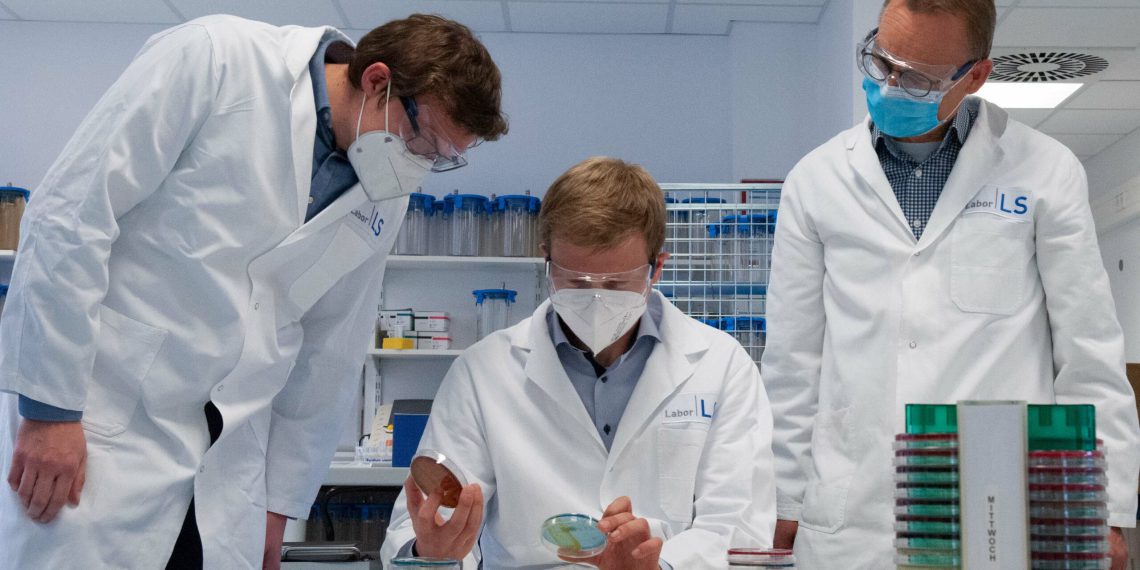The intestine is all the rage in the wellness and health industry right now. But science is also working intensively on this topic. Researchers from the Bioanalytics Department at Coburg University of Applied Sciences are working together with the Lower Franconian laboratory LS from Bad Bocklet on new findings about the intestinal microbiome.
Not many people talk so explicitly about the human digestive tract when they drink coffee. “But a lot has already changed there,” says Dr. Andreas Rüffer, taking a sip with relish: “The microbiome of the intestine has moved into consciousness.” Trillions of bacteria live in the intestine, as well as viruses and fungi. They help with digestion and the development of the immune system, and they influence allergies, obesity, diabetes, neurological diseases and our mental state. The gut microbiome, or the community of microorganisms in the gut, has many functions. Today, it is often referred to as a “superorgan.” How and for what it can be used specifically is being discussed at the Lower Franconian LS laboratory: A scientific team from the bioanalytics department of Coburg University of Applied Sciences is visiting the service provider’s headquarters in Bad Bocklet in the Bad Kissingen district.
Rüffer heads the Enterosan business unit within the company, which specializes in intestinal diagnostics. “The intestine plays a major role in many areas of health,” he explains. The company is very interested in commercially viable innovations in this area. The lab wants something new, something that doesn’t yet exist, as Managing Director Dr. Jürgen Balles adds with a smile. That’s why the company is cooperating with the university.
Still secret: a new medical product
Although the processes in the intestine are often talked about more impartially today than ten or 20 years ago, the topic in principle is not new. “As early as the fourth century, stool was used for medical purposes in China,” says Dr. Christian Büttner. Together with Florian Westhäuser and Dr. Eva-Maria Wittmann, he is part of Prof. Dr. Mathias Noll’s team. The professor heads the bachelor’s degree program in bioanalytics at the Faculty of Applied Natural Sciences at Coburg University of Applied Sciences and is also responsible for the project on the gut microbiome. The researchers are presenting their latest results today: They have developed an innovative method to help patients specifically with microorganisms of the intestine. Dr. Thomas Meindl, Senior Consultant, smiles mischievously, “But we won’t reveal more. The project is still secret.”
Microbiology in Franconia: two strong factors
The laboratory is now one of the largest contract laboratories in Europe. It carries out microbiological and chemical-physical tests for pharmaceutical companies, hospitals and doctors’ practices. The service provider has been working on the gut microbiome since the company was founded in 1987, and the Lower Franconian company and Coburg University of Applied Sciences have been collaborating on research projects for several years. “We have some employees from Coburg,” says Meindl. “The graduates are simply very fit professionally.”
Coburg is one of two places nationwide where bioanalytics can be studied. There is a bachelor’s and a master’s program and the Institute for Bioanalytics. Coburg University of Applied Sciences has some exciting doctoral theses and research projects here — one is the joint project on the gut microbiome, the “super organ” that more and more people are talking about.

















